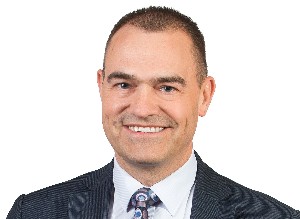Other lawyers note uptick in FMA information orders
While the Financial Markets Authority denies it has significantly increased use of its powers to demand both information and confidentiality as lawfirm DLA Piper has alleged, other lawyers are backing up its claims.
Monday, June 5th 2023, 9:03AM


However, they also note that the FMA's responsibilities, as well as its funding, have increased markedly, as has the complexity of laws governing the financial sector.
And it may be that recipients of FMA orders are seeking legal advice more now than they used to.
Section 25 of the Financial Markets Authority Act 2011 gives the FMA the power to require a person to supply it with specific information or documents, while under section 44 of the Act, the FMA can also make confidentiality orders preventing that person from disclosing the information, or even the fact of the confidentiality order itself, to anyone other than their own lawyer or the FMA.
“We have definitely seen an uptick in clients seeking support in relation to section 25 requests in the past year or so, as well as general information requests from the FMA without reliance on section 25, for that matter,” says Dentons Kensington Swan partner David Ireland.
But he also says nobody should be surprised by that.
“It's a more complex and scarier world in which all participants operate and that gives rise to more issues and things the FMA needs to understand and find out more information about,” Ireland told Good Returns.
But he backs up the FMA's data showing that section 44 confidentiality orders “doesn't seem to be automatic.”
“But when they are imposed, it can be incredibly challenging for those involved. They are hardly conducive to a healthy internal dynamic or effective corporate governance,” Ireland says.
Chapman Tripp partner Tim Williams says while he personally hasn't noticed any particular uptick in FMA requests for information, he has been assisting with two section 25 notices this week.
“In recent times, there may have been an increase, but this is likely to reflect more the FMA's expanded role – for example, we have seen more section 25 notices in the AML/CFT [Anti-Money Laundering and Countering Financing of Terrorism Act] context since the FMA became a supervisor, and in the financial adviser context under the new licensed financial adviser regime,” Williams says.
He notes that the FMA's budget has also increased in line with its greater responsibilities.
The government's 2022 budget increased the FMA's annual operating funding in 2025/26 to $76.4 million from $60.8 million previously.
In his experience, section 44 notices are usually directed at organisations rather than individuals and he suggests when such orders cause difficulties, people should talk to the FMA about them.
“We've found you can talk to the FMA – they're pretty reasonable,” Williams says.
Ireland also recommends “constructive engagement” with the FMA.
“The FMA may not necessarily realise the enormity of the challenge they're putting on the recipient,” Ireland says.
| « Stewart Group welcomes advisers to mid-market ACI Funds | Tough times ahead for NZ economy: Nikko economist » |
Special Offers
Comments from our readers
No comments yet
Sign In to add your comment
| Printable version | Email to a friend |



